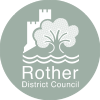A key element of Rother’s post covid recovery plan is to capitalise on digital connectivity by promoting the government Gigabit voucher scheme delivering Full Fibre through Community Fibre Partnerships.
In May 2020 we ran Zoom on-line conversations with Rother Businesses. The conversations focused on three questions:
- The Challenges of lockdown and how this has impacted on local businesses?
- What opportunities have you had to do businesses differently or in a more environmentally friendly way?
- What further support do you need to recover, for you own business and for the Rother economy more widely?

We heard from rural businesses that the poor state of broadband provision was a serious issue. As the country moved to online trading and communications during the initial lockdown, poor connectivity hampered the switch to online trading and communications. Businesses said they wanted Rother to support and campaign for improved connectivity and super broadband provision in the rural areas.
A report setting out the conclusions from the online conversation included a case study provided by Tamara Strapp who owns Russet Farm small business units. She highlighted that the future success of the business is limited by the poor broadband provision which means that of the 12 units, a maximum of 5 tenants can be supplied with internet access.
Those 5 businesses run off two different incoming lines. In addition, Tamara and her husband Nick’s business, Buckland 360, which designs and delivers training courses requires good broadband connection. To overcome the speed limitations of the basic broadband service they added a 4G service to the property. However, uploading massive e-learning programmes continues to be a real problem. The process can take hours and may then crash halfway through because the 4G signal is not always secure. Training via ZOOM to 10 or more delegates strains the 4G system so that it starts to fall over. In a post Covid world where online becomes the norm 4G does not provide all the answers.
One of the businesses supplied via the existing copper infrastructure is Rex’s Speed Shop run by Marcus Rex. https://www.rexs-speedshop.com/about/ This small company, exports motorcycle parts to the UK and around the world. Marcus employs 8 people based in a Russet Farm units. However, Marcus regularly experiences poor connectivity and drop out which can have serious implications when most of his business is on-line.

Tamara had investigated bringing super-fast fibre broad band onto the farm complex but the cost of routing fibre from the A21 to the farm has proved too expensive. However, a catch-up call and visit to the Farm Units in July 2021 revealed that Tamara, her tenants and neighbouring homes and businesses are about to take advantage of the Governments Gigabit Broadband Voucher Scheme. This is a scheme which offers funding in the form of vouchers towards the collective costs of connecting groups of homes and businesses to ultra fast broadband in hard-to-reach rural areas.
Tamara had investigated bringing super-fast fibre broad band onto the farm complex but the cost of routing fibre from the A21 to the farm has proved too expensive. However, a catch-up call and visit to the Farm Units in July 2021 revealed that Tamara, her tenants and neighbouring homes and businesses are about to take advantage of the Governments Gigabit Broadband Voucher Scheme. This is a scheme which offers funding in the form of vouchers towards the collective costs of connecting groups of homes and businesses to ultra fast broadband in hard-to-reach rural areas.
Tamara said “4G has dramatically improved our lives but it does have regular ‘down’ times. We were very impressed with BT Openreach Rural Engagement team who made the process really easy”.
If any rural Rother businesses would like to know more about the Government’s Gigabit Voucher scheme you can find out more by visiting https://www.gov.uk/government/publications/gigabit-broadband-voucher-scheme-information

